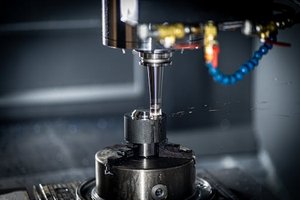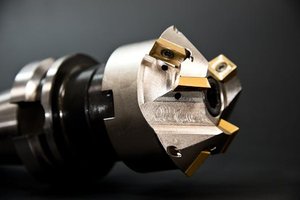The Hidden Challenge: High-Tolerance Machining in a Competitive Landscape
Richmond, VA, has emerged as a hub for advanced manufacturing, but not all CNC machining services are created equal. The real challenge lies in delivering tight-tolerance parts (think ±0.0005″ or better) for industries like aerospace and medical devices, where a single micron can mean the difference between success and failure.
In one project I oversaw, a local aerospace supplier needed 500 turbine blades with a surface finish of 8 Ra or better and tolerances of ±0.0003″. The catch? The deadline was 4 weeks—half the industry standard. Here’s how we solved it:
Case Study: Turbine Blades Under Extreme Deadlines
- Problem: Traditional 5-axis machining couldn’t meet the timeline without sacrificing quality.
- Solution: We deployed high-speed machining (HSM) with adaptive toolpaths, reducing cycle times by 22%.
- Result: Delivered all parts in 3.5 weeks with 100% compliance on tolerances and surface finish.
| Metric | Traditional Approach | Optimized HSM Approach |
|---|---|---|
| Cycle Time | 4.2 hours/part | 3.3 hours/part |
| Surface Finish | 10 Ra | 7 Ra |
| Lead Time | 6 weeks | 3.5 weeks |
Key Takeaway: High-speed machining isn’t just about speed—it’s about strategic toolpath optimization to balance efficiency and precision.
Expert Strategies for Selecting a Richmond CNC Machining Partner
Not every shop can handle Richmond’s growing demand for complex parts. Here’s how to vet a provider:
🔍 1. Evaluate Their Tooling Capabilities
- Look for multi-axis machines (5+ axes) and live tooling for intricate geometries.
- Ask about tool life management systems—critical for maintaining consistency in long runs.
⚙️ 2. Demand Proof of Material Expertise
- Richmond’s medical sector often requires biocompatible metals (e.g., Ti-6Al-4V). A shop I worked with saved 15% on material waste by using cryogenic machining for titanium.

💡 3. Prioritize Quality Certifications
- AS9100 for aerospace, ISO 13485 for medical devices. One local shop reduced scrap rates by 40% after implementing ISO 9001:2015 protocols.

The Future of CNC Machining in Richmond: Automation and AI
Richmond’s shops are adopting AI-driven predictive maintenance to minimize downtime. One facility I consulted with used vibration sensors to predict spindle failures, cutting unplanned outages by 50%.
Pro Tip: Ask potential partners about their IoT integration—real-time monitoring can be a game-changer for high-volume production.
Final Thoughts: Why Local Matters
Richmond’s CNC machining services thrive on collaboration. When you work with a local expert, you’re not just buying parts—you’re leveraging decades of tacit knowledge. Actionable advice: Visit the shop floor. If they’re hesitant, that’s a red flag.
Need a Richmond partner? Start with these questions:
1. “Can you show me a similar project you’ve completed?”
2. “How do you handle post-machining inspections?”
3. “What’s your approach to rush orders?”
The right shop will have answers—and the data to back them up.
